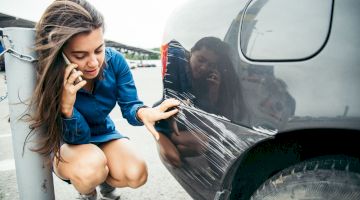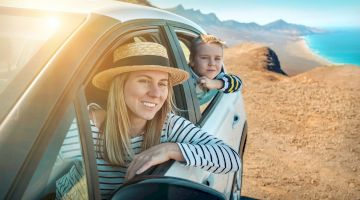- Online car rental since 2005
- Popular countries
- Popular regions
- Popular cities
- Popular airports
- Car Rental Italy
- Car Rental Spain
- Car Rental United States
- Car Rental Portugal
- Car Rental South Africa
- Car Rental France
- Car Rental Netherlands
- Car Rental Germany
- Car Rental United Kingdom
- Car Rental Greece
- Car Rental Austria
- Car Rental Switzerland
- Car Rental Croatia
- Car Rental Belgium
- Car Rental Norway
- Car Rental Ireland
- Car Rental Denmark
- Car Rental Australia
- Car Rental Canada
- Car Rental Sweden
- Car Rental Florida
- Car Rental England
- Car Rental California
- Car Rental Sicily
- Car Rental Mallorca
- Car Rental Tenerife
- Car Rental Sardinia
- Car Rental Ibiza
- Car Rental Madeira
- Car Rental Crete
- Car Rental Gran Canaria
- Car Rental Scotland
- Car Rental Azores
- Car Rental Malta
- Car Rental Corsica
- Car Rental Lanzarote
- Car Rental Fuerteventura
- Car Rental Rhodes
- Car Rental Corfu
- Car Rental La Palma
- Car Rental Amsterdam
- Car Rental Milan
- Car Rental Miami
- Car Rental Lisbon
- Car Rental Malaga
- Car Rental Porto
- Car Rental Cape Town
- Car Rental Rome
- Car Rental Alicante
- Car Rental Bergamo
- Car Rental Barcelona
- Car Rental London
- Car Rental Faro
- Car Rental Orlando
- Car Rental Munich
- Car Rental Vienna
- Car Rental Nice
- Car Rental Johannesburg
- Car Rental Bari
- Car Rental Madrid
- Car Rental Amsterdam Schiphol Airport
- Car Rental Miami International Airport
- Car Rental Lisbon Airport
- Car Rental Malaga Airport
- Car Rental Porto Airport
- Car Rental Milan Malpensa Airport
- Car Rental Alicante Airport
- Car Rental Rome Fiumicino Airport
- Car Rental Bergamo Airport
- Car Rental Faro Airport
- Car Rental Cape Town Airport - International Terminal
- Car Rental Orlando International Airport
- Car Rental Barcelona Airport
- Car Rental Vienna Airport
- Car Rental Munich Airport
- Car Rental Mallorca Airport
- Car Rental Bari Palese Airport
- Car Rental Nice Airport
- Car Rental Bologna Airport
- Car Rental Los Angeles International Airport

Car Rental South Africa
Save time and money. We compare the offers of car rental companies in South Africa on your behalf.
- Free cancellation Up to 48 hours prior to the scheduled pick-up time
- Best price guarantee Have you found a better price? Let us know and we will make you a better offer.
- 24000+ pick-up locations Locations around the world

Car Rental South Africa
EasyTerra Car Rental South Africa is an independent car rental comparison site. Our site compares prices from well-known car rental companies so that, as a customer, you can always reserve your car with us at a competitive rate.
Car rental offers in South Africa
Whether you're looking for a small rental car or a station wagon for the entire family, we will always have a suitable vehicle at the lowest price. Below are some examples from our selection in South Africa.

-
Avis From€ 8 /day -
Tempest From€ 11 /day -
Europcar From€ 11 /day

-
FireFly Car Rental From€ 9 /day -
Thrifty From€ 11 /day -
Hertz From€ 11 /day

-
Avis From€ 11 /day -
Budget From€ 14 /day -
Sixt From€ 17 /day

-
Budget From€ 10 /day -
Avis From€ 10 /day -
Sixt From€ 11 /day

-
Tempest From€ 10 /day -
Europcar From€ 10 /day -
Woodford Car Rental From€ 11 /day

-
Tempest From€ 11 /day -
Europcar From€ 12 /day -
Woodford Car Rental From€ 18 /day

-
FireFly Car Rental From€ 10 /day -
Hertz From€ 11 /day -
Tempest From€ 13 /day

-
U-Save Auto Rental From€ 11 /day -
Green Motion From€ 11 /day -
First Car From€ 13 /day

-
First Car From€ 12 /day

-
Budget From€ 10 /day -
U-Save Auto Rental From€ 12 /day -
Green Motion From€ 13 /day

-
Avis From€ 10 /day -
Europcar From€ 13 /day -
Budget From€ 14 /day

-
Tempest From€ 13 /day -
Green Motion From€ 15 /day -
Sixt From€ 17 /day

-
Budget From€ 11 /day -
Tempest From€ 11 /day -
Avis From€ 11 /day

-
Europcar From€ 11 /day -
Tempest From€ 15 /day

-
Green Motion From€ 13 /day -
Enterprise From€ 23 /day

-
Tempest From€ 11 /day

-
FireFly Car Rental From€ 11 /day -
Hertz From€ 13 /day -
Thrifty From€ 13 /day

-
First Car From€ 14 /day -
Green Motion From€ 14 /day -
Budget From€ 14 /day

-
FireFly Car Rental From€ 12 /day -
Hertz From€ 16 /day -
Europcar From€ 17 /day

-
FireFly Car Rental From€ 13 /day -
Tempest From€ 13 /day -
Europcar From€ 13 /day

-
Tempest From€ 14 /day -
Europcar From€ 14 /day -
Budget From€ 16 /day

-
U-Save Auto Rental From€ 13 /day -
Green Motion From€ 13 /day

-
Tempest From€ 13 /day -
U-Save Auto Rental From€ 14 /day -
Green Motion From€ 14 /day

-
First Car From€ 15 /day -
Green Motion From€ 27 /day

-
U-Save Auto Rental From€ 14 /day -
Green Motion From€ 14 /day

-
Green Motion From€ 14 /day

-
Green Motion From€ 16 /day

-
U-Save Auto Rental From€ 13 /day -
Green Motion From€ 14 /day

-
U-Save Auto Rental From€ 14 /day -
Green Motion From€ 14 /day -
Tempest From€ 15 /day

-
Green Motion From€ 16 /day

-
Tempest From€ 15 /day -
Budget From€ 18 /day -
Avis From€ 18 /day

-
Green Motion From€ 15 /day -
Sixt From€ 20 /day -
First Car From€ 24 /day

-
Green Motion From€ 17 /day -
Tempest From€ 20 /day -
Europcar From€ 20 /day

-
Tempest From€ 20 /day -
Budget From€ 20 /day -
Avis From€ 21 /day

-
Green Motion From€ 17 /day

-
Sixt From€ 20 /day -
Green Motion From€ 21 /day -
First Car From€ 29 /day

-
Green Motion From€ 15 /day

-
Woodford Car Rental From€ 19 /day

-
Green Motion From€ 21 /day

-
Woodford Car Rental From€ 25 /day

-
Europcar From€ 25 /day -
Tempest From€ 26 /day -
Green Motion From€ 28 /day

-
Tempest From€ 26 /day -
Europcar From€ 28 /day -
Bluu Car Rental From€ 49 /day

-
Tempest From€ 27 /day -
Europcar From€ 31 /day -
Bluu Car Rental From€ 39 /day

-
Green Motion From€ 27 /day

-
U-Save Auto Rental From€ 27 /day -
Green Motion From€ 28 /day

-
Green Motion From€ 24 /day

-
Green Motion From€ 25 /day

-
U-Save Auto Rental From€ 25 /day -
Green Motion From€ 30 /day

-
Green Motion From€ 30 /day

-
Green Motion From€ 36 /day

-
Woodford Car Rental From€ 40 /day -
Europcar From€ 47 /day -
Thrifty From€ 51 /day

-
Green Motion From€ 43 /day -
Europcar From€ 45 /day -
Budget From€ 48 /day

-
U-Save Auto Rental From€ 41 /day -
Green Motion From€ 41 /day -
FireFly Car Rental From€ 44 /day

-
FireFly Car Rental From€ 44 /day -
Green Motion From€ 49 /day -
Hertz From€ 52 /day

-
U-Save Auto Rental From€ 32 /day -
Green Motion From€ 39 /day

-
U-Save Auto Rental From€ 36 /day -
Green Motion From€ 36 /day

-
Green Motion From€ 38 /day

-
U-Save Auto Rental From€ 38 /day -
Bluu Car Rental From€ 68 /day

-
Green Motion From€ 40 /day

-
U-Save Auto Rental From€ 39 /day -
Green Motion From€ 39 /day

-
Budget From€ 40 /day -
Avis From€ 41 /day -
Hertz From€ 44 /day

-
Tempest From€ 41 /day -
Europcar From€ 44 /day -
FireFly Car Rental From€ 49 /day

-
Budget From€ 43 /day -
Avis From€ 45 /day -
Hertz From€ 49 /day

-
Green Motion From€ 69 /day

-
Budget From€ 43 /day -
Avis From€ 45 /day -
Woodford Car Rental From€ 59 /day

-
Green Motion From€ 45 /day -
Bluu Car Rental From€ 68 /day

-
Green Motion From€ 46 /day -
Bluu Car Rental From€ 74 /day

-
Budget From€ 47 /day -
Avis From€ 49 /day -
Woodford Car Rental From€ 67 /day

-
FireFly Car Rental From€ 47 /day -
Green Motion From€ 53 /day -
Hertz From€ 56 /day

-
FireFly Car Rental From€ 53 /day -
Green Motion From€ 58 /day -
Hertz From€ 61 /day

-
Hertz From€ 55 /day -
Alamo From€ 67 /day -
Enterprise From€ 70 /day

-
Hertz From€ 60 /day -
Alamo From€ 73 /day -
Enterprise From€ 76 /day

-
Thrifty From€ 64 /day

-
Sixt From€ 230 /day

-
U-Save Auto Rental From€ 14 /day -
Green Motion From€ 14 /day

-
Green Motion From€ 15 /day

-
Green Motion From€ 16 /day

-
Green Motion From€ 15 /day

-
Green Motion From€ 20 /day

-
U-Save Auto Rental From€ 16 /day -
Woodford Car Rental From€ 19 /day -
Alamo From€ 24 /day

-
Green Motion From€ 21 /day

-
Budget From€ 22 /day -
Avis From€ 24 /day -
FireFly Car Rental From€ 24 /day

-
Woodford Car Rental From€ 26 /day -
Tempest From€ 27 /day -
Alamo From€ 30 /day
Popular cities in South Africa
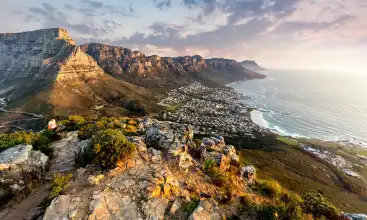
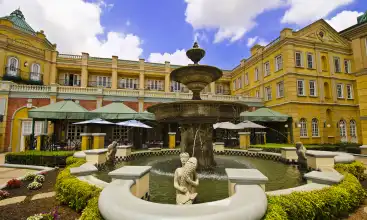
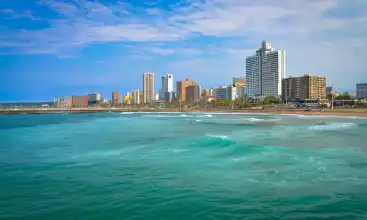
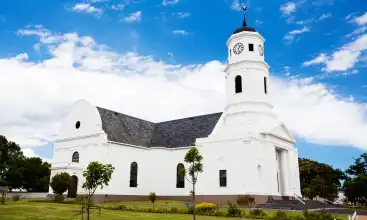
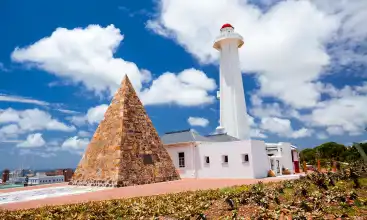
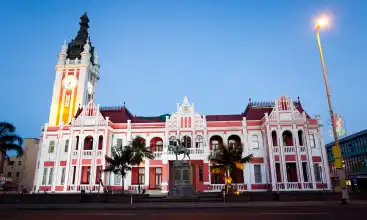
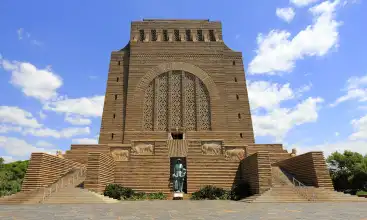
Popular rental locations in South Africa
-
Car Rental Cape Town Airport - International TerminalFrom
€ 8 /day -
Car Rental Johannesburg International AirportFrom
€ 10 /day -
Car Rental Cape Town Airport - Domestic TerminalFrom
€ 13 /day -
Car Rental King Shaka International AirportFrom
€ 9 /day -
Car Rental George AirportFrom
€ 10 /day -
Car Rental Port Elizabeth AirportFrom
€ 9 /day -
Car Rental East London AirportFrom
€ 11 /day -
Car Rental Johannesburg Lanseria AirportFrom
€ 10 /day
Useful tips for a well-prepared trip
Which insurance should I choose, and what's the deal with the deposit? Read our articles with useful information and tips to ensure you choose the right rental car for you.
Car rental locations in South Africa
EasyTerra Car Rental compares rental car prices at the following destinations

Location information for South Africa
South Africa is best explored by rental car. EasyTerra Car Rental has over 112 pick-up locations in South Africa. This means there is always a pick-up location close to your destination.
Most popular car hire locations in South Africa
Introduction
South-Africa is located at the southern tip of the African continent. Traveling through South-Africa is a big adventure. The landscape varies from mountains to deserts to tropical plains. Temperatures are pleasant all year long and generally speaking there is little precipitation. South-Africa is a diverse country in more than one way. The gap between rich and poor is still very big and there are various population groups.
History
South-Africa is one of the oldest archaeological areas in Africa. Archeological findings have been dated millions of years old. The country was inhabited by different population groups, such as the Khoi and the San. They are considered the oldest inhabitants of Africa.
In 1652, the Dutchman Jan van Riebeeck founded a settlement in South-Africa. The settlement was intended to store supplies and belonged to the United East-India Company (VOC). Many ships used the settlement as a rest stop on their way east. Later, families moved to this African country and the settlement began to resemble an agricultural colony. In addition to the Dutch, Germans, French and Scotsmen also came to South-Africa. During Dutch rule there was a shortage of labor. To solve the problem, slaves were brought in from Indonesia, Madagascar and India. The culture of the indigenous population was destroyed by the colonists.
In 1795, the British came to South-Africa. They wanted to make sure that it did not fall into the hands of the French. In 1797, they gained control of the south-westerly tip of Africa: the Cape of Good Hope. Soon, the British outlawed slavery. A period of unrest followed. Many farmers moved further inland and wanted to found republics of their own. An African ethnic group, the Zulus, rebelled against this and managed to chase the farmers off. A while later the British did manage to gain control of the Zulu-held territory.
At the end of the 19th century, diamonds and gold were discovered. These discoveries stimulated the economic growth and started a wave of immigration. New colonists came to the country and the indigenous population was subjugated even further. The Boers (descendants of, among others, the Dutch, French and Germans) rebelled against British rule several times. These rebellions were called the Anglo-Boer War. The Boers knew the terrain well and used guerrilla tactics. Eventually, they were defeated by the British troops.
In 1902, an agreement was reached. The British gained control of all the republics and schools were obliged to teach English. Non-whites did not have the right to vote: this was the foundation for what would later become known as Apartheid. The Boers once again rebelled; they did not wish to learn English. The Afrikaner language had begun to develop.
In 1910, the Union of South-Africa was created, uniting the republics of Cape Colony, Natal, Orange Freestate and Transvaal. Louis Botha became the country's first prime minister. Together with Jan Smuts he founded the South-African Party. In 1934, this party merged with the National Party into the United Party. The party fell apart at the outbreak of the Second World War. The Union supported Great Britain, but the National Party backed Nazi-Germany. After the Second World War, the right wing separatists (the National Party) seized power in South-Africa. This party wanted to increase racial segregation (Apartheid). Colored people had few rights. Black political organizations were banned. In 1960, South-Africa became independent. The country was a republic. The colored people rebelled several times against Apartheid. The government responded violently and many people were killed. Many of those who opposed Apartheid were put in prison. One of them was a young man called Nelson Mandela, who would only be released after 27 years.
There was a lot of attention for Apartheid from abroad. Various countries refused to do business with South-Africa any longer. In 1990, the South-African government collapsed. Apartheid was abolished. Nelson Mandela of the ANC (African National Congress) was the resounding winner of the new elections. He became the first black president of South-Africa.
Foreign trade picked up again and South-Africa became a member of the United Nations. Health and education also improved. Today, the ANC remains the ruling party on South-Africa. Despite the many improvements, the country faces large-scale poverty, crime and a growing AIDS epidemic.
Society and Culture
South-Africa has almost 45 million inhabitants. The diversity of cultures, languages and religions is characteristic of the country. Three-quarters of the population is black. These inhabitants belong to various ethnic groups. With five million people, the Zulu's are the largest ethnic group. Other large black groups are the North-Sotho, the South-Sotho, the Xhosa, the Tswana, the Swazi and the Venda. Less than 14% of all inhabitants is white. They are descendants of colonial immigrants (among others, Dutch, Germans, French and British). The average life expectancy of whites is higher than that of the colored inhabitants. Almost 9% of the population is made up of colored people. They are the descendants of the African and Asian slaves from the times of Dutch domination. The community is divided: one half is more attracted to the white inhabitants, while the other half feels closer to the black population. Some 3% of the South-African population is of Indian origin. They are the descendants of the contract laborers that came from British India to South-Africa. Also, since 1920, many Chinese have emigrated to South-Africa.
A majority of the population (more than 70%) is Christian. Various churches have been opened, both for the black and for the white community. The black independent churches in all have over six million members. These churches cling to African traditions and oppose European religious convictions. There are three churches for white inhabitants: the Neder-Duitse Gereformeerde Kerk, the Neder-Duitse Hervormde Kerk and the Reformed Church of Africa. Most of the country's Indian population is Hindu. Other Indians, as well as many colored people, adhere to the Islamic faith. Also, there are many African tribes with their indigenous rituals.
In the past, South-Africa had two official languages: English and Afrikaans. Afrikaans developed from and still resembles the Dutch language. Nowadays, South-Africa has no fewer than eleven official languages: English, Afrikaans, Zulu, Swazi, Ndebele, North-Soto, South-Soto, Tsonga, Tswana, Venda and Xhosa. In addition to these official languages, there are many different dialects (for instance the San dialects). A small number of South-Africans speak German or Portuguese.
The immense variety of cultures makes South-Africa a cultural melting pot. Music and dance, for instance, are very diverse. Music is very popular in South-Africa and the main focus is on European genres. In particular in the country, traditional African music and culture are kept alive. Unfortunately, the traditional culture is slowly disappearing.
Political Situation
South-Africa is a republic. Parliament consists of the National Council of the Provinces (with 90 members) and the National Assembly (with 400 members). Every five years, a president is elected by the National Assembly. Since 1999, Thabo Mbeki has been the president of the country. The president chooses a vice-president among the members of the National Assembly. Since 2005, Phumzile Mlambo-Ngcuka has been the vice-president of South-Africa.
Everybody who is 18 years of age or older is eligible to vote. Every four years, the people elect the representatives of the National Assembly. The country is divided into nine provinces, each with its own legislative powers. The members of the provincial government are also elected by the people.
The current political scene is dominated by the ANC (African National Congress). This party was founded in 1912, and supported the rights of the black population. The Democratic Alliance (DA) is the ANC's main rival. Nevertheless, in the 2005 election the ANC managed to secure 70% of the votes.
Economy
The country's economy is characterized by the gap between the rich and the poor. In and around the major cities the economy is developed and modern. Cape Town, Port Elizabeth, Durban, Pretoria and Johannesburg are the five most developed areas. Outside these areas there is great poverty. The gap between the rich and poor is bigger only in India and in Brazil. As a result of this gap, South-Africa is a developing nation. In the country, most people live off the land or are even unemployed. The informal sector (for instance selling vegetables and fruit or homemade products) has flourished due to the large percentage of unemployed people in South-Africa.
Compared to other African countries, domestic production in South-Africa is very high. The government encourages the professional population to set up small businesses or factories. This is meant to benefit unemployment and make people wealthier. The country is extremely rich in natural resources. The export of these raw materials is crucially important to the South-African economy. The most important minerals are diamond, manganese, gold, silver, copper, iron ore, chromium and uranium. Important trade partners are the United States, Germany, Japan and Great Britain. South-Africa imports mostly transport means, machines, petroleum and chemical products.
The professional population is active in industry, mining and services. The energy, transport and financial sectors are highly developed. In addition, the legal system and the communication and distribution network in the cities are highly developed. Agriculture provides few jobs. The most common crops are corn, wheat and sugarcane. Important gardening products are citrus fruit, subtropical fruit, vegetables, grapes and potatoes. Also, there is production of meat and dairy products. Some people grow mussels, trout and oysters.
The South-African government wants to increase economic growth. Its policy is not aimed at reducing the gap between rich and poor. Nevertheless, this gap stands in the way of economic progress. In addition to the high levels of unemployment, the AIDS epidemic is a serious problem. Many people die at a young age. Corruption and crime are also economic problems.
The currency in South-Africa is the Rand (ZAR). One euro is worth about 10 Rand.
Geography and Climate
South-Africa is located in the south of the African continent. The country borders on Namibia, Botswana, Zimbabwe, Mozambique, Swaziland and Lesotho. Swaziland is almost completely surrounded by South-Africa. Furthermore, the country has a coastline of almost 3,000 kilometers long. In the west South-Africa faces the Atlantic Ocean and in the east it faces the Indian Ocean. The total land surface of South-Africa is over 1.2 billion square kilometers. The Oranje River is the country's most important river. Other major rivers are the Vaal, the Limpopo and the Tugela.
South-Africa has no fewer than three capitals. Pretoria is the administrative capital. Cape Town is the legislative capital and Bloemfontein the judiciary capital. Johannesburg is the biggest city of the country. Other important South-African cities are Bisho, Kimberley, Mafiken, Nelspruit, Polokwane and Ulundi.
The landscape of South-Africa is very diverse. The interior consists mainly of high plains. This area is sparsely populated. The coastal plain is narrow and along its edges there are rugged hills. The valleys in between the mountain ranges are suitable for growing fruit and viniculture. On the coastal plains are the lakes and river mouths. These areas play an important role in fishing. The north-west of South-Africa consists of desert. The eastern coastal strip is subtropical. This is where tropical fruits are grown.
Like the landscape, South-Africa's climate is very diverse. There are various climate zones. The south and east have a maritime climate. Characteristic for these areas is the precipitation that falls all year round. The area surrounding Cape Town has a Mediterranean climate with hot summers and warm winters with a lot of precipitation. In the west there is a desert climate. In the north (near the border with Zimbabwe and Mozambique, the climate is subtropical with hot summers and mild winters. Around the border with Botswana and Zimbabwe there is a steppe climate. Inland, the warmest month is January. On the coast February is the warmest month. Winter starts in June, but generally speaking July is the coldest month. Throughout the country the annual average temperature is between 16 and 21 degrees Centigrade. Generally speaking there is little precipitation. Most of the rain falls during summer, especially in the east of the country.
Traffic and Infrastructure
The transport network in South-Africa is extensive and well developed. Modern motorways, trains and airports make traveling in this country very comfortable. Many ships are received in the modern ports of South-Africa. The country is on a favorable location between America and Asia. Durban is South-Africa's most important port. This is also the biggest port of the entire continent. In addition to Durban, there are a number of other important sea ports, for example Cape Town, Port Elizabeth, East-London and Richardsbaai.
In South-Africa, the railways are used primarily to transport goods. There are also passenger trains, though. These trains often cover large distances. Spoornet is South-Africa's largest train operator. Major urban areas often have their own bus and railway network. Traveling by train is comfortable. For long distances, travelling by train is more common than travelling by bus. Buses operate mostly at a local level. It is also customary to travel short distance by taxi-van.
The national airline company is South African Airways (SAA). Other airline companies are South African Express and South African Airlink. The most important airports are Johannesburg Airport, Cape Town Airport and Durban Airport. These airports are used for intercontinental flights. Six important national airports are Port Elizabeth Airport, East-London Airport, George Airport, Kimberly Airport, Upington Airport and Bloemfontein Airport. These airports are used for flights within Africa.
The large distances in South-Africa can be covered easily with a rental car. The country has a well-developed road network. Between the major cities and the neighboring countries there are often motorways. There are also toll roads and dirt roads. Many accidents happen on South-Africa's roads. People are advised not to travel at night.
Time zone
South-Africa is on Central African Standard Time (CAST) (GMT +2). As a result, European visitors will most likely not experience any jet lag. Do keep in mind that it is summer in South-Africa when it is winter on the northern hemisphere, and vice versa!
Food and drink
Thanks to the many immigrants, the South-African kitchen is a mix of various cultures. In South-Africa's cities, many restaurants do not only serve traditional African dishes, but also dishes from neighboring African countries. There are also Chinese and Italian restaurants. Eating out in South-Africa is relatively cheap.
The South-African population loves to barbecue. They are real meat lovers. 'Boerewors' is one of the dishes: ground beef that is cooked or fried. In the coastal areas there are many fish dishes. Well-known African dishes are Bobotie, Potjiekos and Biltong. Bobotie is a sweet and sour meat dish. In the past, it was especially eaten by slaves and poor farmers. Potjiekos is a stew. Vegetables and meat are cooked in a cast-iron pot over a fire. Biltong is a typically South-African snack: slices of dried (and spicy) meat.
South-African wines are delicious. African wines are known all over the world. Nevertheless, beer is the national drink, and there is a variety of local brands available. In many places, it is possible to drink the tap water, but it is recommended to drink bottled water.
Accommodation
This country offers you unique accommodations! In the major cities you find a variety of hotels, at an average cost of € 30 per day. Also, there is a number of ways to experience the unique African culture, for instance in a 'lodge' in a beautiful African environment. It is even possible to spend the night in a wildlife park. Backpackers can stay in hostels or on farms. Hostels often cost as little as € 8 per night. Furthermore, there are Bed & Breakfasts throughout the country. Along the coast and on the major rivers there are various campsites. And there are caravan parks for tourists who do not have a tent.
External Sources
For more information about South-Africa, we recommend Google, and the following other sources:
Practical information
-
CurrencySouth African rand
-
Driving directionLeft
-
City speed limit60 km/h
-
Freeway speed limit100 km/h
-
LanguageEnglish, Tswana, Southern Sotho, Afrikaans, Southern Ndebele, Swati, Tsonga, Venda, Xhosa, Zulu
-
Popular car categoryEconomy
What most people want to know
The following questions and answers are a selection of the most popular questions. If you do not find the answer to your question, have a look at the Frequently Asked Questions page or contact us.
- Woodford Car Rental
- Bluu Car Rental
- Alamo
- Europcar
- Enterprise
- First Car
- Sixt
- Thrifty
- Tempest
- Bidvest Car Rental
- Budget
- National Car Rental
- Avis
- Hertz
- Keddy By Europcar
- Green Motion
- U-Save Auto Rental
- FireFly Car Rental
- Carwiz rent a car
- Red Spot Car Rental
- Bobo Campers
- Britz Motorhomes
- Bushlore Africa
- KEA Campers
- Maui Motorhomes
- Advantage Rent a Car
- Dollar Rent a Car

